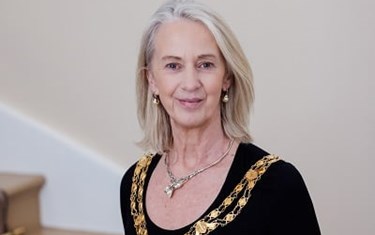Michael Chang, Office for Health Improvement and Disparities, became a Fellow of the RTPI in 2022 and reflects on his journey as a planner.
 Working at the Town and Country Planning Association for a substantive early part of my career in the UK, opened my eyes to the many possibilities of planning as a regulatory process to deliver on important outcomes.
Working at the Town and Country Planning Association for a substantive early part of my career in the UK, opened my eyes to the many possibilities of planning as a regulatory process to deliver on important outcomes.
Climate change adaptation, green and blue spaces, culture and the arts, sport and leisure and renewable energy were some of the main topic areas I led or were involved in in the UK, the EU and even in China.
But it was of course, working on planning for health projects which occupied much of my policy and projects work, and where I found I could have a specific and unique contribution in the profession. It was only in 2016 when I felt I had the sufficient demonstrable level of competency to apply for chartership through the Associate route.
So becoming a Fellow in 2022 (four years after receiving honorary membership of the Faculty of Public Health) based on my work around planning for public health, is an important career milestone for not only for me but also for the profile of health in planning.
By accepting me into the Fellowship, it demonstrates the commitment of the RTPI in championing planning and planners as a force for positive change in improving people’s health, wellbeing and quality of life. I call on the RTPI to continue its engagement and promotion of healthy placemaking through its research and wider policy advocacy work.
Planning and planners matter to health. During one of the peaks in the COVID-19 pandemic, I wrote a piece in The Planner to remind us of planning’s capacity to influence wellbeing, and called for planners and public health professionals to seriously consider how to put the wealth of existing research and evidence into practice.
2022 will be seen as a turning point when the population’s physical and mental wellbeing is finally upgraded to join other important policy agendas. We have seen health professionals emerge on The Planner's Women of Influence list and the RTPI President making health his presidential theme.
Health is about sustainable transport, healthy homes, accessible public green spaces and adapting to climate change, because these are the determinants of people’s health. These determinants are the enablers to supporting everyone, particularly those in greater need, leading meaningful, happy, connected and productive lives and relationships.
In turn this benefits the economy, drives up quality of life and reduces reliance on the NHS from avoidable illnesses. The former housing and health secretary, The Rt Hon Sajid Javid MP, said in his 2021 Blackpool speech that “we can only level up economically if we level up in terms of health too”.
Everyday actions by every planner in whatever sector or level - the development management planner, the planning appeals inspector, the property planning consultant and planning educator - have a demonstrable impact on whether current and future generations will have a decent quality of life.
Actions by allied professionals such as architects, landscape architects, building services engineers and highway engineers also contribute to this impact. There may be a perception that this impact may not be immediately obvious or immaterial, but cumulatively and over time, the impact on people and communities will surface, for better or worse.
For example the location of sites allocated will lock in health outcomes of residents for generations to come. Who could have thought site allocations, beyond just identifying housing land supply, can be a critical public health intervention?
It’s a win-win if we all acknowledge our part in the bigger picture. The RTPI voice is critical because planning and planners are central to shaping those determinants of health. People’s lives are literally and metaphorically in our hands.


